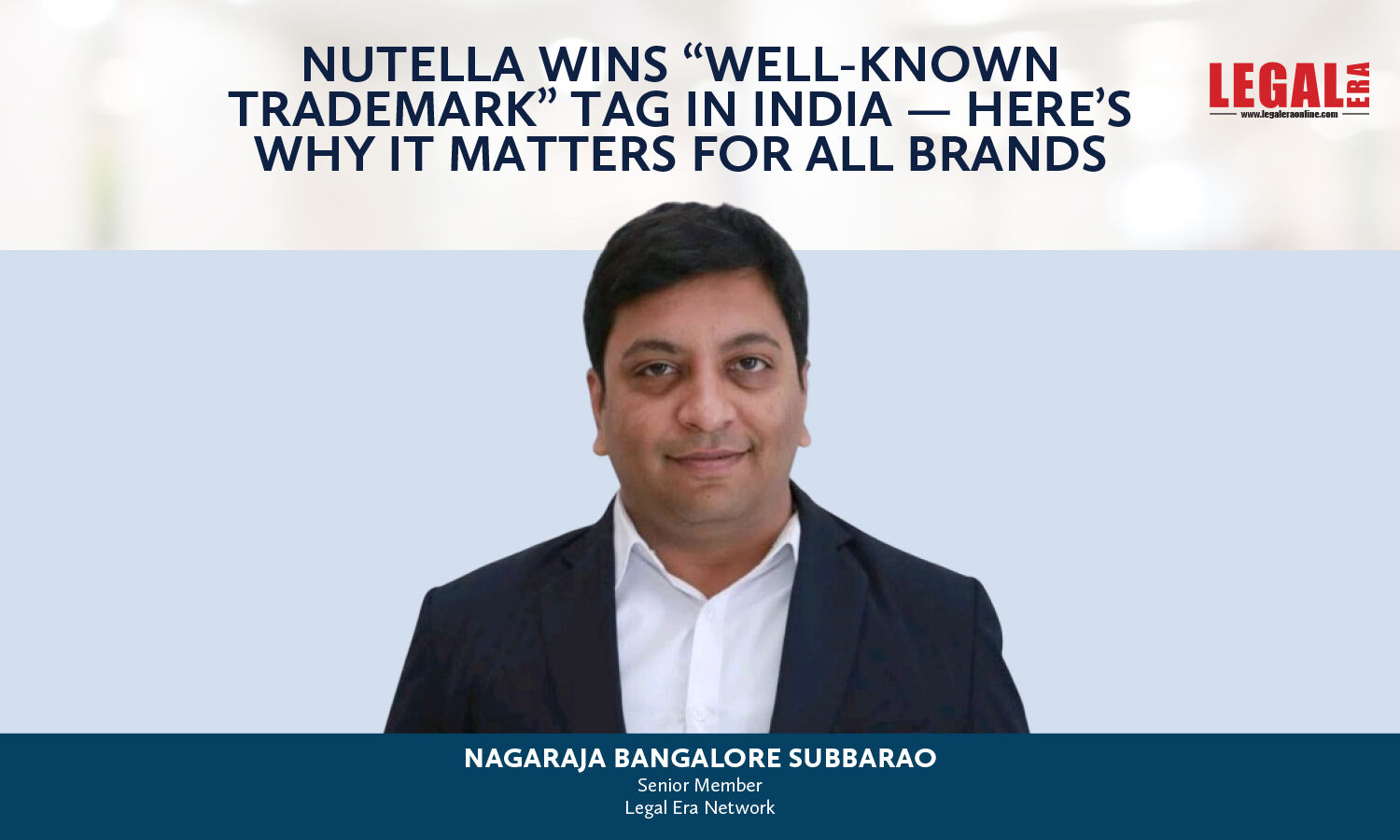
Nutella Wins “Well-Known Trademark” Tag in India — Here’s Why It Matters for All Brands
In a significant judgment for brand protection jurisprudence in India, the Delhi High Court has officially declared “Nutella” a well-known trademark under Indian trademark law. The ruling, delivered in Ferrero SpA & Ors. v. M.B. Enterprises (CS(COMM) 593/2021), strengthens the legal toolkit available to global and domestic brand owners facing the growing threat of counterfeit and infringing products in the Indian market.
This is more than just a trademark victory for Ferrero—it’s a strategic case study in how to protect brand equity at scale.
The Case at a Glance
Ferrero SpA, the Italian confectionery giant behind Nutella, filed a trademark infringement suit against M.B. Enterprises, a Thane-based entity involved in large-scale counterfeiting. The case followed a Food and Drug Administration (FDA) raid in October 2021, where authorities seized over 9.5 lakh counterfeit Nutella units and more than 4 lakh printed labels and packaging components. The counterfeit goods, posing serious consumer safety risks, were being passed off as genuine Ferrero products.
The Legal Basis for “Well-Known Trademark” Recognition
The Delhi High Court’s declaration is grounded in:
- Section 2(zg) of the Trade Marks Act, 1999, which defines a “well-known trademark” as a mark which has become so well-recognised by the public that its use in relation to other goods or services would likely indicate a connection with the original brand owner.
- Section 11(6) of the Act, which lays down the criteria for determining whether a mark qualifies as well-known. These include the extent of public recognition, the duration and geographical area of use, the volume and value of goods under the mark, advertising efforts, registrations, and previous recognitions.
The court found that Ferrero’s evidence more than satisfied these conditions. Nutella has been marketed globally since 1964 and has been present in the Indian market since at least 2009. In fact, Ferrero’s earliest trademark application for Nutella in India dates back to 1975. The court also took into account:
- Substantial advertising expenditures: ₹3 crore (2020–21), ₹7 crore (2021–22), and ₹16 crore (2022–23).
- Consistent sales in India: ₹233 crore, ₹145 crore, and ₹106 crore in those same financial years.
- Prior recognition of Nutella as a well-known mark by international bodies such as WIPO and INTA.
Court’s Findings and Orders
Justice Saurabh Banerjee, presiding over the matter, observed that Nutella’s reputation and consumer recognition left no room for doubt about its well-known status. Emphasizing the heightened duty of care in matters involving edible goods, the Court expressed concern over the public health risks of counterfeit food products—particularly those targeted at children.
Proceeding ex parte, as the defendant failed to appear or file any defence, the Court granted the following reliefs:
- Declaration of Nutella as a “well-known trademark” under Indian law.
- Permanent injunction restraining the defendant and related parties from manufacturing, selling, or advertising counterfeit Nutella products or any deceptively similar goods.
- ₹30 lakh in damages awarded to Ferrero for trademark infringement.
- ₹2 lakh in legal costs, directed to be paid to the Delhi High Court Bar Association Fund.
Why This Judgment Matters
This decision has far-reaching implications for brand owners and IP professionals:
1. Pan-Class Protection: A well-known trademark enjoys cross-category protection. Even if Ferrero does not produce beverages or clothing under the Nutella name, others cannot use the mark in those segments.
2. Enforcement Leverage: Judicial recognition as a well-known mark makes it easier and quicker to obtain interim relief, including injunctions, and to argue against deceptively similar marks.
3. Consumer Safety & Public Interest: Courts are willing to take an expansive view when trademarks are linked to consumer well-being—especially in the food and pharmaceutical sectors.
4. Precedent for Domestic Brands: Indian businesses with strong market visibility, extensive use, and significant advertising could also consider seeking well-known mark declarations to secure broader protection.
The High Court’s Role in Trademark Strategy
The Delhi High Court has continued to be a leader in shaping India’s IP jurisprudence. Under the Trade Marks Act, it has the power to grant a “well-known” designation during the course of infringement proceedings. Courts rely on documentary proof, market data, advertising history, and expert opinions to assess a brand’s prominence.
This ruling reinforces the fact that brands that consistently invest in their IP, enforce their rights, and build market goodwill can unlock substantial strategic advantages through the legal system.
Final Takeaway
Ferrero’s legal success is a textbook example of how intellectual property can be used not only to protect brand identity but also to elevate its commercial value. In a competitive and counterfeit-prone market like India, this recognition ensures that Nutella is more than just a spread—it’s a brand with judicially protected reputation.
For companies building iconic brands in India, this case is a call to action: Register early, enforce consistently, and when the time is right, pursue “well-known” status to gain the full spectrum of trademark protection.